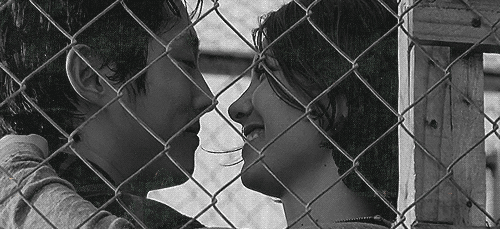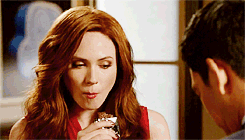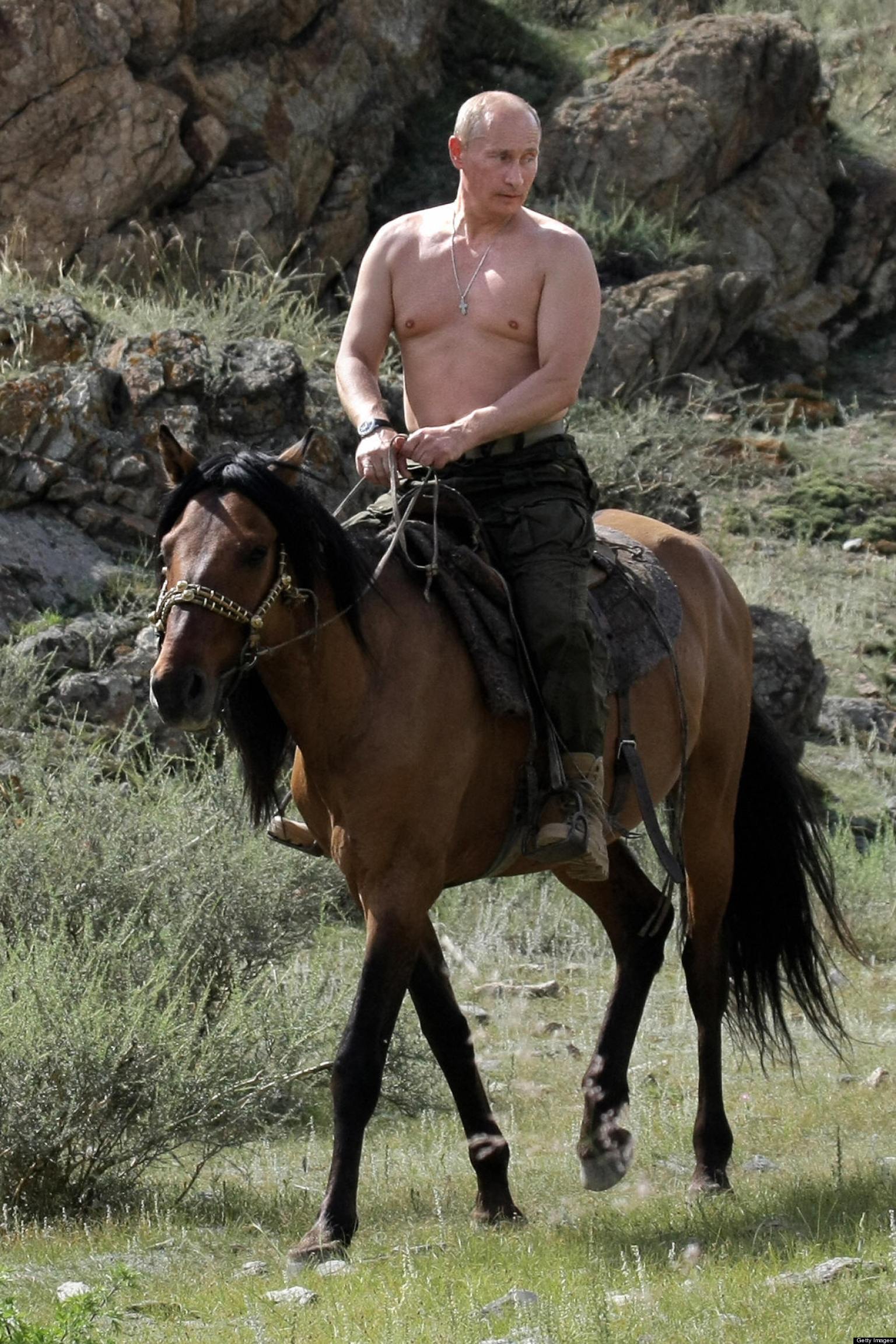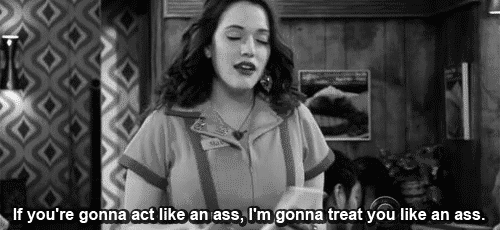Roughly six years ago I sat in a guest house in London, England, and complained to a Korean friend about not being attractive. It’s funny seeing it typed out now, and it wasn’t so starkly apparent at the time, but that’s exactly what I was worried about. We were studying abroad with a group of mostly White classmates from a predominantly White liberal arts college, and as an eighteen-year-old I had dating on the mind. That, and the beginnings of the idea that things might not be so easy for me given the colour of my skin.

And unlike John Cho and his suit, my skin does not peel away to reveal more equally-good-looking skin underneath.
My primary source was media and pop culture, and how interracial relationships weren’t showcased much, if at all [not much has changed, 2009!]. I suggested that this might create a life-imitating-art situation, where young non-hyphenated-American women might not be as open to the idea of getting together with an Asian guy due to never seeing it on screens small or large. He brought up that he’d had no problems in the past [being musical, and with that bone structure?], as well as the more damning evidence that neither had I. With that I left the topic of conversation alone, not entirely convinced or at peace with the whole thing.
Truth be told, I can probably draw the origins of my obsession with racial diversity to that point in time. It may not have been motivated by any great injustice [though I was single throughout college, (correlation or causation?)], but fast forward to the futuristic year of 2014 and we find that when observing the pop culture landscape things are little better.
Now would probably be a great time to pause and assert, possibly needlessly, how deeply important representation is. It’s not to say that we should not or cannot empathize with characters that don’t look like us, but it should never be a challenge if and when we want to. When I was a kid my favourite people on TV were Arthur, the titular aardvark, and Billy the blue Power Ranger. And do you know why that is? Because they both wore glasses.

The ABC promo people were this close to making this the most appropriate gif.
Let me drop this knowledge bomb on you that I haven’t stopped citing since I first found out about it in 2012: “The self-esteem of white girls, black girls and black boys decreases with TV consumption.” Conversely White male children, the adult versions of which have arguably the broadest and overall most positive depiction on television, get a boost. Take note that it’s not just the overall presence of a certain race or gender that’s important, it’s how they’re presented.
Take, for example, Han Lee, the only Asian cast member of a show I have reviewed 41 episodes of. Now I’m going to throw out as many adjectives that describe him as I can: short, cherubic, childlike, disrespected, impotent, unmanly, unattractive, gullible, emasculated, unpopular, effeminate, desperate . . .

I wanted to use solely Selfie gifs for this post, but the above needed to be shown.
Let’s just say that for the most part, when they’re not actively denying their heritage, Asian men are not portrayed as being particularly desirable. One of the points I brought up to my friend all of those years ago was that interracial relationships were [and are] almost exclusively presented as a White male and a non-White female, with the reverse rarely ever occurring. Asian women were exotic and alluring, Asian men were, well, asexual at best.
Over half a decade after that first conversation I had another with a different handsome Korean named John Cho, the romantic lead to the ABC sitcom Selfie. While he never spoke to me directly his existence in that role was evidence enough that maybe things really could change.
While the show was revealed to be cancelled roughly two weeks ago, thankfully there are others out there on the internet willing to contribute paragraphs towards just what it was that we lost [and, consequently, what we could gain back with its unlikely renewal]. As Sonia Saraiya says, “This was the most promising interracial couple on TV”. Having an Asian actor be front and centre on any show is a surefire win, but to have that person also be portrayed as, dare I say it, attractive?

Mild spoilers for a show you should’ve been watching gosh darn it-
The briefest of segues for our honourable mention, of course, to Glenn and Maggie-

This makes up for the 2 Broke Girls gif, but ultimately dilutes the Selfie concentration.
-but at the end of the day the draw of The Walking Dead is and always has been the zombies. Don’t talk to me about human drama, because if you take the walkers away there literally is no show. Selfie was, at its core, a program about two people drawing closer together and it was a truly beautiful thing [helped, of course, by those two people being beautiful]. The Walking Dead posits that in this post apocalyptic wasteland anyone can find love, whereas Selfie shows us a fictional world that exists to revolve around a would-be couple and has the male half of this heterosexual duo be Asian.
Which is all to say that it was, and is [ABC has to air the remaining episodes somehow], a groundbreaking moment in television history. Cho himself is not blind to what it means, and “would call [it] revolutionary.”

“Revolutionary?” “Revolutionary.”
Reading that word three times back to back helps shine a lot of light on how far we’ve come since my first year of college, and how far we were even then from the days of Mickey Rooney in Breakfast at Tiffany’s [gif not provided as the point of this post is not to elicit anger and/or rage]. It’s revolutionary that we might turn on the television and be presented with an Asian male character that is actually meant to be seen as desirable.
Vulture cites Cho as being Type 1 of 6 when it comes to Asian men who get to have sex on TV, and let me tell you the majority of the others are not flattering. In “An In-Depth Cultural Analysis of Asian Male TV Characters Getting Some Action” the Korean-American and the characters he plays are followed by The Humorous Hookups [sex for the sake of humour] and The Color-Blinds [Asian men who, due to the way their characters are written (and named) are essentially White]. Due to his appearing in the successful Harold & Kumar and Star Trek film series Cho has managed to represent a Type all his own, an Asian man who doesn’t deny, or wallow in the foreignness, of his ethnicity.
Which isn’t to disparage Ken Jeong’s career as a comedic actor or, as mentioned above, Steven Yeun’s role in The Walking Dead. I’m ecstatic that both are successful and are doing what they can to further Asian diversity, but it’s not in the same way Cho has, and that Selfie would have continued to do had ABC not canned it.

I like to imagine that he’s shrugging here at any and all efforts made to keep him down.
It has been a number of years, so I’ve more or less gotten over the feeling of not being considered attractive due to my race [living in the most diverse city in North America has helped]. In spite of that no longer being an issue my desire to see the media landscape shift has not stopped. I don’t want any other Asian children growing up having to find connections in what characters wear. Moreover, I want us to be able to live in a world where a movie will feature a diverse cast and any of the guys, not automatically the White dude, could have a chance of ending up together with the girl, where none are viewed as less handsome due to their ethnicity.

SPOILERS SPOILERS SPOILERS but seriously I really liked Fast Five. Shoutout to Sung Kang.
NOTE: While every single gif used admittedly features an interracial relationship between an Asian man and a White Woman, my point doesn’t extend to solely those couples. The reason I veered away from couples where both were Asian is due to the very popular idea that people of the same racial background will pretty much always end up with one another which is pretty problematic in and of itself.











 That’s not all the narrative has in store, either, as it’s not just any factory they turn to for their shirts. American Ace, for all intents and purposes, is the apparel carbon copy of
That’s not all the narrative has in store, either, as it’s not just any factory they turn to for their shirts. American Ace, for all intents and purposes, is the apparel carbon copy of 























 counterbalance that by portraying female promiscuity in a similar light. I wish I could say Max did the same here.
counterbalance that by portraying female promiscuity in a similar light. I wish I could say Max did the same here.




















 With the third episode my rate doubled, so I went to Michael Patrick King and thanked him- “Hey, thank you. That’s a nice amount of money I’m getting paid.” He told me, “Don’t thank me, that’s the agent, that’s Hollywood.” I don’t know how it works. I’m Italian, just being polite.
With the third episode my rate doubled, so I went to Michael Patrick King and thanked him- “Hey, thank you. That’s a nice amount of money I’m getting paid.” He told me, “Don’t thank me, that’s the agent, that’s Hollywood.” I don’t know how it works. I’m Italian, just being polite.
 Now I don’t know if you’ve noticed, but do you think her character is TOO over the top?
Now I don’t know if you’ve noticed, but do you think her character is TOO over the top?